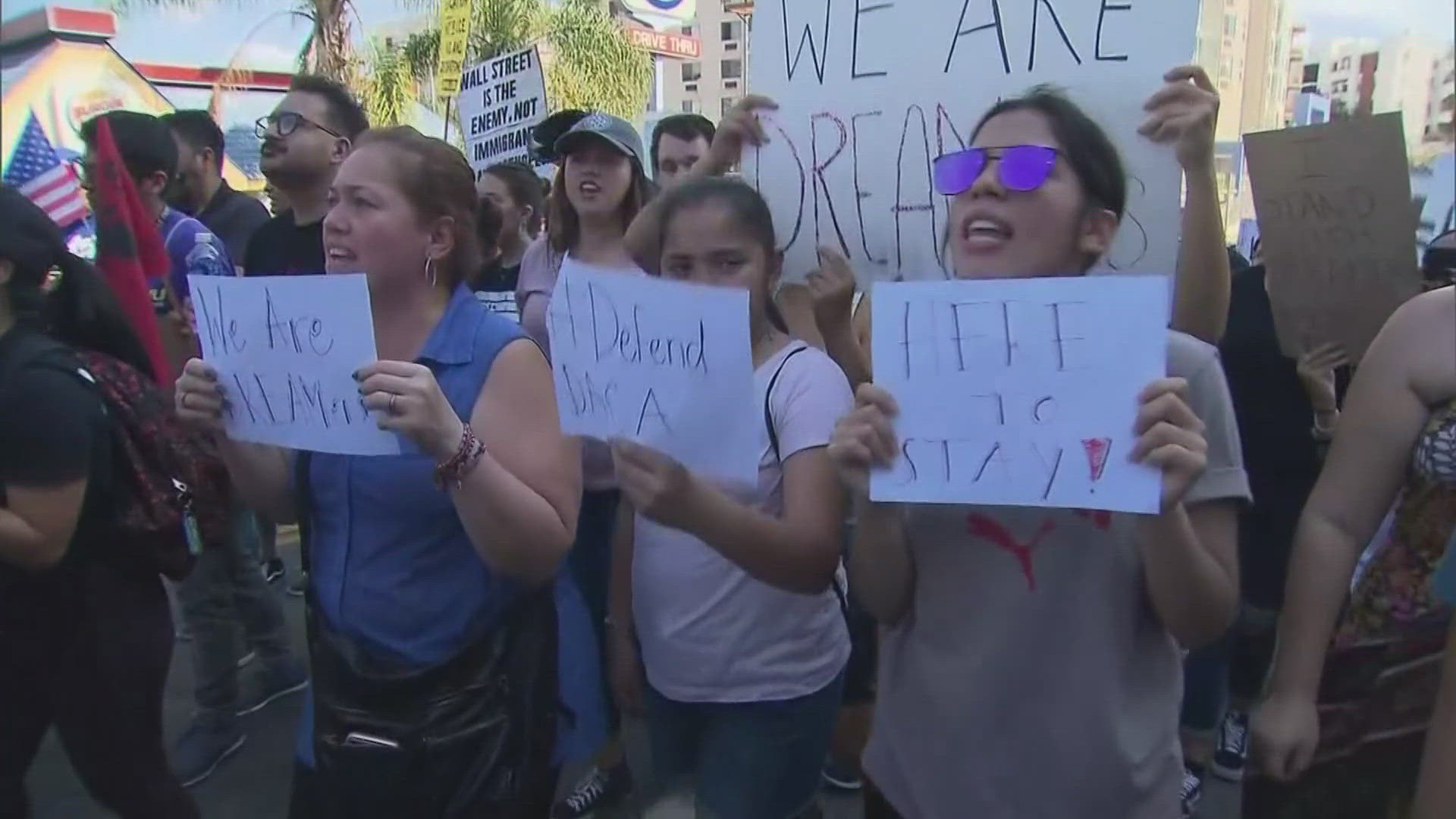DENVER — Deferred Action for Childhood Arrivals recipients know every two years, they will have to renew their documents and work authorization.
DACA, a program instated under the Obama administration, temporarily shields recipients from deportation and provides them with work authorization. In order to keep their DACA status active, they must renew every two years.
Blanca Silva has gone through the process before, but this time it took longer.
Silva typically would get her DACA status renewed within three months after she applied. This time, she applied in October and didn't receive the renewal until the end of April -- seven months later.
"It's always a limbo," Silva said. "It was worrying too because it was taking so long. So it had taken much more time than any other time I had applied."
Agencies that help DACA recipients are reporting immense delays, meaning some applications are taking twice as long as normal. Some advocates believe it is due to staffing shortages. Other advocates said it's because U.S. Citizenship and Immigration Services is instead prioritizing other applications, such as Temporary Protected Status.
"It was basically back into being undocumented," Silva said. "I had to just stay at a standstill and in a way, kind of go back into the shadows and not really put myself at the forefront getting in trouble, or anything like that."
A recent fee increase is creating additional frustration for applicants. USCIS recently raised their fees from $495 to $555 for online applications and $605 for mail-in paper applications.
"People might lose their employment if their DACA expires before they can get renewed," said Raquel Lane-Arellano, Communications Manager with Colorado Immigrant Rights Coalition.
While CIRC can help with the paperwork, there is little they can do once the paperwork is in the hands of the federal government.
"We're seeing that this creates a really big mental burden on DACA recipients because they don't know if they are going to be able to be here, to be with their families," Lane-Arellano said. "It puts people at a continuous risk of deportation."
Lane-Arellano said the team at CIRC is aware that some Dreamers have lost their jobs due to an inactive DACA status and work authorization, due to the USCIS delays. Some have even described losing their housing as a result of their lost status, because they can't afford to make rent.
"We’ve had people who have applied together at the same time and one person got theirs within two months and the other person had to wait seven months to hear back," Lane-Arellano said.
The delays underscore a wider issue - that DACA recipients are constantly facing a two-year clock.
"It's always at a limbo. There's never any real security that you will get DACA again," Silva said. "I always say it's like a subscription to being here in the United States or being able to work here in the United States that you have to renew every two years, and that you are never confident that you will receive it again."
In an election year, many worry about the fate of the Obama-era program and what other solutions, if any, may be offered long term.
SUGGESTED VIDEOS: Full Episodes of Next with Kyle Clark

